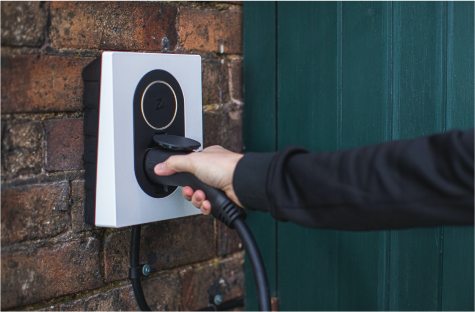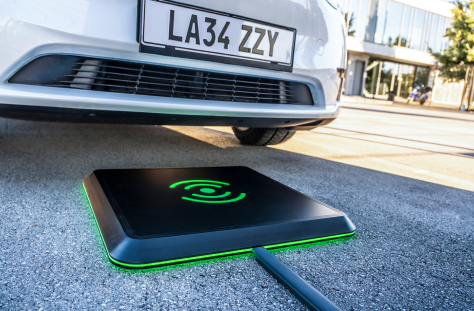Payment options & regulatory considerations
As electric vehicles continue to gain traction, stakeholders ranging from commercial fleet operators to multifamily building owners are faced with the task of understanding and implementing effective charging solutions. One crucial aspect of this endeavor is determining the most suitable payment and access options for EV chargers. In this article, we'll explore the diverse landscape of EV charging infrastructure, payment methods and regulatory considerations in the United States.
Understanding charging infrastructure
EV charging infrastructure encompasses various types of chargers, including Level 1, Level 2 and DC fast chargers. Level 1 chargers utilize a standard household outlet and offer the slowest charging speeds, while Level 2 chargers provide faster charging through a 240-volt outlet. DC fast chargers, on the other hand, deliver rapid charging, making them ideal for commercial applications and long-distance travel.
Payment options
1. E-Mobility providers:
E-mobility providers like ChargePoint, EVgo and Electrify America operate extensive charging networks and offer various payment options. Users typically create accounts and can access chargers through RFID cards, mobile apps or contactless payment methods. These providers often offer subscription plans, pay-as-you-go options or a combination of both.
2. EV-centric mobile applications:
Several mobile applications cater specifically to EV owners, offering features such as locating nearby chargers, checking charger availability and initiating charging sessions. Apps like PlugShare, ChargeHub and Greenlots allow users to pay for charging directly through the platform, streamlining the process for drivers.
3. Charging networks:
Some regions have established charging networks that provide interoperable access to multiple charging stations. Examples include the Electric Highway Coalition in the Northeast and Midwest, which enables seamless charging along major corridors. These networks often support various payment methods, enhancing convenience for users.
4. Private vs. public chargers:
While public chargers are accessible to all EV drivers, private chargers may require authorization or membership. Commercial fleet operators and multifamily building owners can install private chargers for exclusive use by employees, residents or tenants. Payment and access to private chargers are typically managed internally or through third-party platforms.
Regulatory considerations
In the United States, access to EV chargers is governed by a combination of federal, state and local regulations. The following are some key considerations:
1. Accessibility requirements:
The Americans with Disabilities Act (ADA) mandates that EV charging stations be accessible to individuals with disabilities. This includes features such as designated accessible parking spaces, signage and access aisles.
2. Anti-discrimination laws:
Some states have implemented anti-discrimination laws to prevent EV charging station owners from restricting access based on factors such as vehicle brand or ownership. These laws aim to promote fair competition and accessibility within the EV charging market.
3. Utility rules and requirements:
Utility rules and requirements may impact the deployment of EV charging infrastructure, particularly regarding rate structures, interconnection policies and incentive programs. Utilities play a crucial role in supporting EV adoption by facilitating the integration of charging infrastructure into the grid.
4. Zoning and permitting:
Local zoning ordinances and permitting processes may affect the installation of EV charging stations, especially in commercial or residential settings. Stakeholders should familiarize themselves with local regulations to ensure compliance and streamline the installation process.
As the demand for EV charging continues to grow, stakeholders must navigate the complex landscape of payment options, charging infrastructure and regulatory requirements. By understanding the diverse range of solutions available—from e-mobility providers and mobile applications to charging networks and private installations—businesses and building owners can facilitate the seamless adoption of electric vehicles while complying with relevant regulations. Embracing innovation and collaboration in the EV charging ecosystem will be essential to driving sustainable transportation forward.
Cost ranges for electric vehicle charging equipment
Electric vehicle charging equipment comes in various types and configurations, each with its associated costs. Here are approximate cost ranges for different types of EV charging stations:
Level 1 charging stations:
Purchase cost: Level 1 charging stations are typically the most basic and least expensive option. They usually come included with the vehicle and are designed for standard household outlets (120 volts).
Estimated cost: Level 1 charging equipment may cost anywhere from $100 to $300, depending on the brand and features.
Level 2 charging stations:
Purchase cost: Level 2 charging stations offer faster charging than Level 1 and require a dedicated 240-volt circuit. They come in various models with different features such as network connectivity, smart charging capabilities and ruggedized designs.
Estimated cost: Level 2 charging equipment typically ranges from $500 to $2,500 or more, depending on the brand, features and installation requirements.
Installation cost: Installation costs for Level 2 charging stations can vary significantly depending on factors such as electrical infrastructure upgrades, permitting, labor costs and site-specific considerations. On average, installation costs may range from $1,000 to $5,000 per station, but this can vary widely based on project specifics.
Level 3 (DC fast charging) stations:
Purchase cost: Level 3 charging stations, also known as DC fast chargers (DCFC), are capable of delivering rapid charging for EVs, making them suitable for high-traffic areas and long-distance travel corridors. They require sophisticated technology and infrastructure.
Estimated cost: Level 3 charging equipment is considerably more expensive than Level 1 and Level 2 stations due to their advanced capabilities. Costs can range from $10,000 to $50,000 or more per charging unit, depending on the charging capacity, manufacturer and additional features.
Installation cost: Installation of Level 3 charging stations involves complex electrical work, high-power connections and potential infrastructure upgrades. Installation costs can vary significantly depending on factors such as site preparation, electrical infrastructure requirements, permitting and labor costs. On average, installation costs for Level 3 chargers may range from $20,000 to $100,000 or more per station.
Deploying large charging station installations
Deploying large charging station installations for public charging involves additional considerations and costs beyond individual charging units. These may include:
1. Site preparation:
This involves assessing and preparing the site for the installation of multiple charging stations, including land acquisition, site design and infrastructure planning.
2. Power supply upgrades:
Large installations may require significant upgrades to the electrical infrastructure to support multiple charging stations operating simultaneously at high power levels.
3. Network connectivity:
Integrating charging stations into a networked system for monitoring, management and payment processing may require additional equipment and software solutions.
4. Permitting and compliance:
Obtaining necessary permits, complying with local regulations and meeting safety standards are essential steps in deploying large-scale charging installations.
Overall, the cost of deploying large charging station installations can vary widely depending on factors such as the number of charging stations, site-specific requirements, infrastructure upgrades and ancillary services. Costs for such projects can range from tens of thousands to millions of dollars, depending on the scale and scope of the installation. It's essential to conduct a thorough assessment and cost analysis to determine the budget and financing needs for large-scale EV charging infrastructure projects.

















